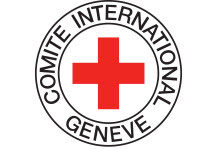MOGADISHU, Somalia, July 12, 2023/ — The African Union Transition Mission in Somalia (ATMIS) is training 55 military and police personnel on efficient fuel supply and delivery in the best and safe environmental manner as it is a critical factor to ensuring the success of an imminent joint assault on Al-Shabaab militants.
ATMIS Deputy Force Commander in-charge of Operations and Plans, Maj. Gen. Marius Ngendabanka, told the opening ceremony of the workshop on improving fuel supply chain that a planned second phase of ATMIS-Federal Government operations against the terror group would require an increase in the demand for fuel and lubricants.
“The increased number of operations will automatically increase air support and fuel requests. The participants should have enough knowledge to improve their understanding of fuel and lubricant delivery,” said Maj. Gen. Ngendabanka.
“This workshop is a perfect opportunity for them to know how much quantity of oil, fuel and lubricant must be issued based on the needs of contingent equipment,” he added.
The workshop comes at a time when ATMIS is preparing to conduct an assessment to inform the next phase of planned troop withdrawal for September 2023. Last month ATMIS drew down 2,000 troops in compliance with UN Security Council Resolutions 2628 and 2670 (2022) and handed over security responsibilities in selected Forward Operating Bases (FOBs) to Somali Security Forces.
The workshop, organised by the ATMIS Joint Support Operations Centre (JSOC) and the United Nations Support Office in Somalia (UNSOS) Fuel Unit, is to ensure continuous and timely provision of proper quantity and quality of Petroleum, Oil, and Lubricants (POL) in an eco-friendly manner.
The ATMIS Chief Logistics Officer, Col. Bosco Sibondavyi, said, “the intention of this training is to expand knowledge and improve the understanding on fuel and lubricant push quantity.”
The training is also aimed at identifying obstacles that hinder appropriate and timely supply of fuel, which is one of the crucial products required for the successful operation of ATMIS’ FOBs.
“Sustainability is one of the topics we will explore as ATMIS, UNSOS, UN Assistance Mission in Somalia (UNSOM), and Somali National Army (SNA). How can we use technology and transparency to build a sustainable fuel function from upstream with contractors to downstream with end users?” said Michael Dorn, UNSOS Chief Service Delivery Officer.
At the end of the workshop, participants are expected to have an in-depth understanding on Push quantities for bulk fuel requirements, oil reporting requirements, the challenges and impact on ATMIS contingents, and the requirements for non-routine fuel among others.
As part of efforts to reduce its carbon footprint emissions, ATMIS with support from UNSOS, has started replacing most of its power generators in the FOBs with solar power. However, as a peace enforcement mission, its operations still require the use of vehicles, aircrafts, and other fuel consuming equipment.
UNSOS provides logistics support to ATMIS, to enable the contingents operate both UN-owned and Troop Contributing Country (TCC) equipment safely and effectively, as well as to provide pre-deployment and in-theatre training.















